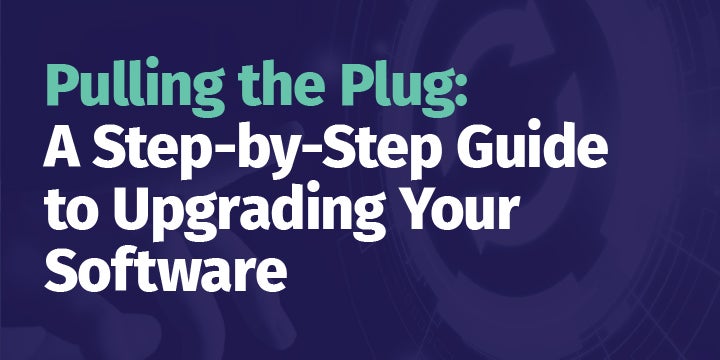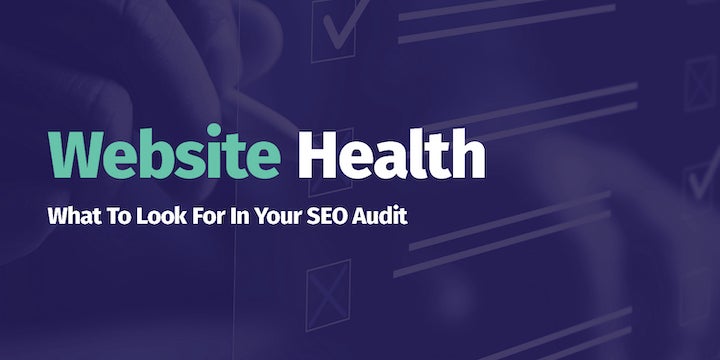How Can I Improve My Search Engine Rankings?

Content marketing is all about playing a game that’s seemingly impossible to master; it takes finesse, recalibration, creativity, collaboration, and of course, analysis. Today, we’re going to discuss how analyzing your site can help guide your evolving content strategy in a productive, fruitful direction.
Content marketing is imperative to fuel the growth of your business. It’s about the creation and distribution of content aimed to grow your business by increasing online visibility. The right content marketing strategy will enhance your reputation, assist in the sale of products, help you maintain relationships with current clients, appeal to new clients, and effectively share your brand.
Your website, landing pages, advertisements, and other online strategies will work together to accomplish all these essential goals. However, in the end, to have an effective marketing strategy, you must rank well on the search engine results page (SERP). This is easier said than done. Climbing the ranks of Google’s organic listings involves detailed analytics and recalibration of your marketing content. Google’s exact algorithm to rate pages is a closely guarded piece of intellectual property, but analysts have come far in bringing out what matters most in the ranking process. These elements include:
Keywords: This element is central to determining a site’s ranking; using the correct keywords and phrases in the right way will help boost your rankings.
Links: Both backlinks and internal links help give your site credibility and provides a desired user-friendliness that Google seems to reward.
Optimizing Content: Well-written, credible content with strategically placed keywords and phrases is imperative if you’re aiming to climb the ranks of Google.
URL Structure: The URL leads users to a particular webpage, and if you look closely at the URL structure, it should help filter and sort content on a website.
Trust and Reputation: This goes hand in hand with the content you put on a site. Your work must prove trustworthy over time to enhance your reputation.
Site Speed: This involves how long it takes for a page to load and refresh.
Session Duration: This measures how long users stay on a particular page; the longer someone navigates your content, the better.
In the end, you must consider all of these elements to achieve one goal: a higher ranking on the SERP. However, understanding your ranking is a little more complicated than the face-value explanation. You may have noticed that you can Google the same thing and get different results, so it’s all about finding the sweet spot of achieving a space in those top 10 (or, even better top three) search results.
Analytics tools such as Semrush and Google Search Console will help you determine where you and your competitors rank. Even further, these tools will give you the data to come up with a strategy that helps move you higher up in Google’s rankings. At FieldRoutes, we aim to use these tools and others to collect data about your website’s performance. We want you to know how these tools can help boost your online marketing strategies in concrete, measurable ways.
Google Search Console and Semrush
What’s the difference, and why do you need both?
In short, both Google Search Console and Semrush are analytical tools that do slightly different things. However, they’re both an essential part of improving your online marketing strategy. Currently, Google Search Console is mainly about the user experience. It uses first party data collected directly from Google. It analyzes the terms people search for and click onto your site from. Semrush, on the other hand, provides deep competitive insight about search terms. Though Semrush creates an insightful view of your website’s performance that’s arguably a bit easier to understand than Google Search Console, a lot of its comparative data is estimated due to lack of access to actual website performance.
Overall, we operate under the notion that both tools, when used in conjunction, create a dialogue about how your online marketing strategy is working. It gives us the data to understand what we can do to review, revise, and improve your rankings.
Google Search Console – The Basics
Google Search Console is a tool created by Google that highlights and analyzes some features that you can use to help improve your website. Its reports highlight performance, coverage, and improvements. It investigates how your site performs over time, according to Google. Some of its most useful features include:
Performance Analysis: This tool collects data so that you can see how your content is performing over time. Performance analysis also builds reports and spreadsheets to create a single, easy-to-read view of your marketing efforts. You can see which pages are performing well and which need work. Even further, you can filter collected data to focus in on rich results, Accelerated Mobile Pages (AMP), non-rich AMP results, and other data that will influence your online marketing strategy.
URL Inspection Tool: This helps you determine how Google views your site; even further, you can ask Google to crawl new content to collect data about how its performing.
Coverage: This tool helps you see how your web content is performing in the Google search by creating index reports. These reports let you know which pages are being indexed or not indexed and provides insight as to why. Specifically, it provides information about errors, what pages are receiving organic traffic, sitemaps, outdated information on your site, and more.
Links: Google Search Console will locate who’s linking to your site and analyze the links within your site to make sure they’re working correctly. It will help you know if others are using you as an authority and whether or not users can easily navigate through your content.
In short, Google Search Console helps you think about how your site is performing over time; it highlights what’s going wrong and gives you insight about improvement. When our team at FieldRoutes uses this tool, we look at the big picture focusing on user-friendliness. We look at the site’s performance over time and delve deep into the gears that make the site work. If parts aren’t working optimally, we work with you to develop a plan to make necessary changes. This may mean fixing links, adding more keywords, restructuring your website, or adding content. Our strategies are customized based on your data and your growth goals.
Delve Deeper Into Performance Research With the Semrush Tool
Why aren’t you getting more traffic? What are they doing that you are not?
The Semrush tool is a comprehensive performance analytic tool; it does it all. It not only focuses on keywords and structure, but it also compares your site with your competitors (and your competitors’ competitors), which helps you consider how your ranking holds up against others and think about how you can learn from your competition to enhance your content marketing strategy.
There are lots of SEO analytical tools, and we’ve looked at them all. In the end, we believe that Semrush packs the biggest punch. Seven of its most valuable features include:
Keyword Research: Developing a keyword strategy is the foundation for your content marketing game plan. This tool identifies keyword phrases likely to enhance your search traffic. Even further, it helps come up with new keyword ideas. This includes keyword phrase suggestions that relate to top-ranking keywords on your and your competitor’s sites.
Tracks and Analyzes You and Your Competitors: This tool helps you monitor yourself and your competitors to help you see whether or not your traffic is improving over a period of time. Whether you’re looking at improvements over a week, a month, a year, or two years, monitoring this feature will help you bear witness to your progress and understand how your marketing efforts are paying off. It also takes websites with similar keyword phrases (these are likely your competitors) and gives you an understanding of their traffic levels. If these sites are performing better than yours, it will help guide your strategy in an improved direction.
Runs an SEO Audit: The audit tool crawls your site and identifies issues and suggests improvements based on preset criteria according to SEO best practices. Issues are grouped by severity – errors, warnings, and notices.
Looks For Linking Opportunities: Having other sites link to you will ultimately drive your traffic. Semrush helps you determine where your competitors are getting their backlinks from and will help you strategize for your site.
Tracks Current and Past Organic Landing Position on the SERP: This aspect of Semrush helps you see the progression or regression of your rankings. It will help you determine what strategies work best to boost your position on the SERP. You may consider revisiting these strategies in your marketing efforts if you see a surge after adding new content or revising your keyword strategy. It also helps you track current traffic and see exactly where it’s coming from. Trends change with time, and if something is working at the moment, you will likely want to capitalize.
Provides Insight Into Advertising Opportunities: Part of your advertising strategy will likely use Google AdWords. If you’re aiming to advertise a lot, this could get expensive. Semrush will provide insight into advertising opportunities. Part of developing the best advertisement opportunities involves creating informative, helpful, and credible content so that other sites will want to connect with you. Semrush will provide insight into a keyword strategy then connect you to other businesses that are using similar keywords. This will help you know who to reach out to for additional advertising opportunities. It will also help you find these advertising opportunities more quickly than your competitors, allowing you to quickly capitalize on a chance to advertise before someone with similar intentions.
Helps You Navigate Google’s Updates: Semrush constantly looks for changes in Google’s algorithms and then applies these changes to their program’s strategies. For example, Google’s Panda update looked for duplicated content, poorly written content, and keyword stuffing. Then, Google eliminated this content as criterion to boost rankings. Semrush audits your site for poor content, thus giving you the opportunity to make changes accordingly.
In the end, analyzing your site and improving your rankings is all about form and function. A site must be visually and structurally organized, updated, and aesthetically pleasing. It must function efficiently and effectively with the user in mind. It must be easily found and consumed by the user which is where content and keywords come into play. As you’ve likely noticed, both Google Search Console and Semrush determine which keywords are typically searched and thus most effective in website content. Of course, using keywords is more than simply inserting them into your content. It’s about how they’re strategically used to enhance your overall marketing strategy.
FieldRoutes™ Will Develop, Analyze, Strategize, and Optimize Your Content
Having these tools is imperative to develop and improve the online marketing strategy for your field service company. However, having the right tools is only the first step toward achieving better rankings. You must take the information provided by these tools and apply it to your online presence. This takes skill, time, and effort. Fortunately, the team of experts at FieldRoutes can do it all. We use both Semrush and Google Search Console to collect and analyze data. Then, we work with you and your budget to develop a strategy to implement measurable change to your marketing strategy
We know the field service industry, so we’re able to create content that reflects your company and the needs of the industry as a whole. Our services include:
A creative team of designers who create websites, graphics, video, photography, and recommendations for brand development
Content creation and revision aligned with SEO best practices
SEO audits that help inform best practices
Local SEO, search, and directories ensuring that all your information is accurate and discoverable by your community
PPC advertising campaigns
Data presentation and analytics through the FieldRoutes™ Compass marketing portal
E-mail marketing and other client retention services
At FieldRoutes, maintaining and updating the content marketing strategy for your field service business is our full-time job. We are dedicated to being the best in the business. Reach out to us today to learn more about how we use analytical tools to grow your business, build your brand, and out-compete your competitors!
Call for a Demo at 207.492.4235
Join the growing number of thriving businesses using FieldRoutes to acquire new customers, improve automation, and crush the competition.
Works Cited
Baas, Jordan. (2021 February 18). “Google Search Console Vs. Semrush”. Web3. Retrieved from: https://web3.com.au/search-console-vs-Semrush/
Crowe, Anna. (2021 April 9). “Google Search Console: A Complete Guide for SEOs”. Search Engine Journal. Retrieved from: https://www.searchenginejournal.com/google-searchconsole-guide/209318/#close
Ofwie, Michelle. (2021 May 19). “Search Engine Ranking: How to Use Semrush to Track Keywords and Positions”. Semrush. Retrieved from: https://www.Semrush.com/blog/ search-engine-rankings/





